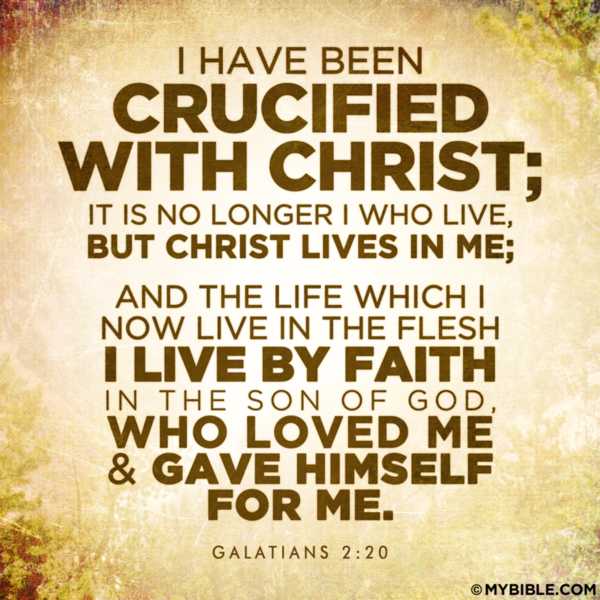"Behold My Servant
Behold, my servant shall deal prudently, he shall be exalted and extolled, and be very high.
As many were astonied at thee; his visage was so marred more than any man, and his form more than the sons of men:
So shall he sprinkle many nations; the kings shall shut their mouths at him: for that which had not been told them shall they see; and that which they had not heard shall they consider.
Who hath believed our report? and to whom is the arm of the Lord revealed?
For he shall grow up before him as a tender plant, and as a root out of a dry ground: he hath no form nor comeliness; and when we shall see him, there is no beauty that we should desire him.
He is despised and rejected of men; a man of sorrows, and acquainted with grief: and we hid as it were our faces from him; he was despised, and we esteemed him not.
Surely he hath borne our griefs, and carried our sorrows: yet we did esteem him stricken, smitten of God, and afflicted.
But he was wounded for our transgressions, he was bruised for our iniquities: the chastisement of our peace was upon him; and with his stripes we are healed.
All we like sheep have gone astray; we have turned every one to his own way; and the Lord hath laid on him the iniquity of us all.
He was oppressed, and he was afflicted, yet he opened not his mouth: he is brought as a lamb to the slaughter, and as a sheep before her shearers is dumb, so he openeth not his mouth.
He was taken from prison and from judgment: and who shall declare his generation? for he was cut off out of the land of the living: for the transgression of my people was he stricken.
And he made his grave with the wicked, and with the rich in his death; because he had done no violence, neither was any deceit in his mouth.
Yet it pleased the Lord to bruise him; he hath put him to grief: when thou shalt make his soul an offering for sin, he shall see his seed, he shall prolong his days, and the pleasure of the Lord shall prosper in his hand.
He shall see of the travail of his soul, and shall be satisfied: by his knowledge shall my righteous servant justify many; for he shall bear their iniquities.
Therefore will I divide him a portion with the great, and he shall divide the spoil with the strong; because he hath poured out his soul unto death: and he was numbered with the transgressors; and he bare the sin of many, and made intercession for the transgressors."
Isaiah 52:13-15; Isaiah 53
_______
“For it is not possible that the blood of bulls and of goats should take away sin.” [Hebrews 10:4]
The blood of such creatures did all that was available till the Lamb of God came and suffered for us, not only made sin and become a curse on the tree, but for us an offering and a sacrifice to God for a sweet-smelling savor. For every shadow met and was more than fulfilled on our account in Him who glorified God as God in His death for sin, as He had in His life glorified Him as His Father in an equally perfect obedience. It is unbelieving blindness to see in His cross nothing more than a martyrdom for the truth and an example of holy love. These elements were in it beyond doubt, but incomparably more: the absolute necessity on God's part as well as ours of One as truly God as man, one mediator both of God and men, Christ Jesus man, who gave Himself a ransom for all, who suffered for sins once (and once was ample), Just for unjust, that He might bring us to God, not yet to heaven (however surely this in due time) but (what was of the utmost moment for the soul now and here) “to God.” And what can be plainer than the prophet's figures? He (none other in heaven or on earth could avail), He only, He truly, He effectually “was wounded,” not as reward for any good in us, but “for our transgressions.” When in their darkness they did esteem Him stricken, smitten of God, it was governmental, and significant of God's displeasure. But now they knew by divine teaching and state it as a certain truth that only in sovereign grace to helpless and otherwise ruined sinners, was He therein wounded for our transgressions, bruised for our iniquities. It was God's way to save righteously. If the Jews did not dispute that through one man sin entered into the world, and through sin death; and thus death passed upon all men for that all sinned (adding then their personal sins to Adam's transgression); much rather did the grace of God, and the free gift in the grace of the one man Jesus Christ exceed unto the many. Was it not worthy of God and due to the Savior, that where sin abounded, grace should exceedingly surpass? Compare the unworthy first man's sin with the all-worthy Second's suffering for sins. Who but an unbeliever could fail to see the infinite contrast, that grace should flow abundantly for the salvation of the believer, as judgment must act all the more certainly against those who despise such a God and such a Savior?
Peace with God, for such as we were, needed an immovable foundation. And He is the foundation, righteous and holy even for us through “the blood of His cross.”
“The chastisement of our peace was upon Him.”
Who else could have borne it? Sinful man must have sunk under what sin deserved irretrievably and forever. But He whom knowing no sin God made sin for us endured to the utmost, and was raised righteously and triumphantly, Jesus Christ the same yesterday and to-day and forever.
“And with His stripes we are healed.”
Such is the one divine and only panacea for any and every lost one who bows to the Crucified One and to the righteousness of God, abjuring his own righteousness but confessing his guilt and ruin.
This is what takes away not only guilt but guile, and stablishes him that had been dishonest and deceitful in integrity even in God's sight. The mouth is all the freer and fuller to own its wicked folly:
“All we like sheep have gone astray; we have turned each to his own way.”
There was no exception: all astray, yet each in his own evil way. Yet in the face of all wrongs, and in His own spontaneous and all-overcoming goodness Jehovah caused to light upon Him the iniquity of us all.
Did not one of our own poets sing “I lay my sins on Jesus?” Nay, friend, God's truth is far beyond thy hymn. Jehovah who knew all laid the iniquity of all that believe on Him. Is not this far greater, better, and surer? We have all had habits of sin, even those converted young; and a sinful habit genders forgetfulness as well as heedlessness of sins. Which of us could be so confident for eternal salvation as to rely on our own memory in laying our sins on Jesus? How awful to have presumed fatally in such a case! How blessed, even apart from that danger, to have the certainty that God does perfectly for the believer what he himself could only do imperfectly! What grace on His part, and what pitiful consideration of our shortcoming He who could not but feel abhorrent every act of self-will, every uprising of independency and rebellion, caused the vile mass of iniquity to light on His head who is here shown to be its infinitely suffering Sin-bearer, willing because Jehovah willed it in a grace which is His prerogative, to save the lost."
William Kelly, Excerpt from Behold My Servant: Part 3
"Wherefore when he cometh into the world, he saith, Sacrifice and offering thou wouldest not, but a body hast thou prepared me: In burnt offerings and sacrifices for sin thou hast had no pleasure. Then said I, Lo, I come (in the volume of the book it is written of me,) to do thy will, O God. Above when he said, Sacrifice and offering and burnt offerings and offering for sin thou wouldest not, neither hadst pleasure therein; which are offered by the law; Then said he, Lo, I come to do thy will, O God. He taketh away the first, that he may establish the second. By the which will we are sanctified through the offering of the body of Jesus Christ once for all. And every priest standeth daily ministering and offering oftentimes the same sacrifices, which can never take away sins: But this man, after he had offered one sacrifice for sins for ever, sat down on the right hand of God; From henceforth expecting till his enemies be made his footstool. For by one offering he hath perfected for ever them that are sanctified." Hebrews 10:5-14
_______
"Hebrews 10:23: Let us hold fast the confession of our hope—
*The Greek word here, krateo, built from the word meaning force, strength, indicates a holding fast against foes, a fight of faith on earth. For there were many indeed that would rob the Hebrew believer of his heavenly faith and hope, and destroy his confession of them; just as indeed with all believers: such foes as Satan, the world, worldly Christians, the earthly church-system, false friends. So Paul says to us:
"If Ye then were raised together with Christ, seek the things that are above, where Christ is, seated on the right hand of God. Set your mind on the things that are above, not on the things that are upon the earth" (Col. 3:1-2)
The beginning of Christian warfare, indeed, the essence of it, we have here!
Here we have again what is constantly urged upon believers—the public confession of our hope in our Lord. This was set forth in Luke 12:8:
"Every one who shall confess Me before men, him shall the Son of Man also confess before the angels of God"
; and in Romans 10:9-10:
"If thou shalt confess with thy mouth Jesus as Lord, and shalt believe in thy heart that God raised Him from the dead, thou shalt be saved: for with the heart man believeth unto righteousness; and with the mouth confession is made unto salvation."
It is especially emphasized in Hebrews 13:15:
"Let us offer up a sacrifice of praise to God continually, that is, the fruit of lips which make confession to His Name."
That it waver not—How wonderful has been the constancy and boldness of the many saints recorded in Scripture: Abraham, Moses, Samuel, David, Daniel and the prophets, and the apostles in the Acts!
For He is faithful that promised: The great preventive of wavering is remembering that He is faithful that promised. Our hope is built upon the faithfulness of God, and not in any wise upon anything in ourselves."
William R. Newell, from Hebrews Verse by Verse










